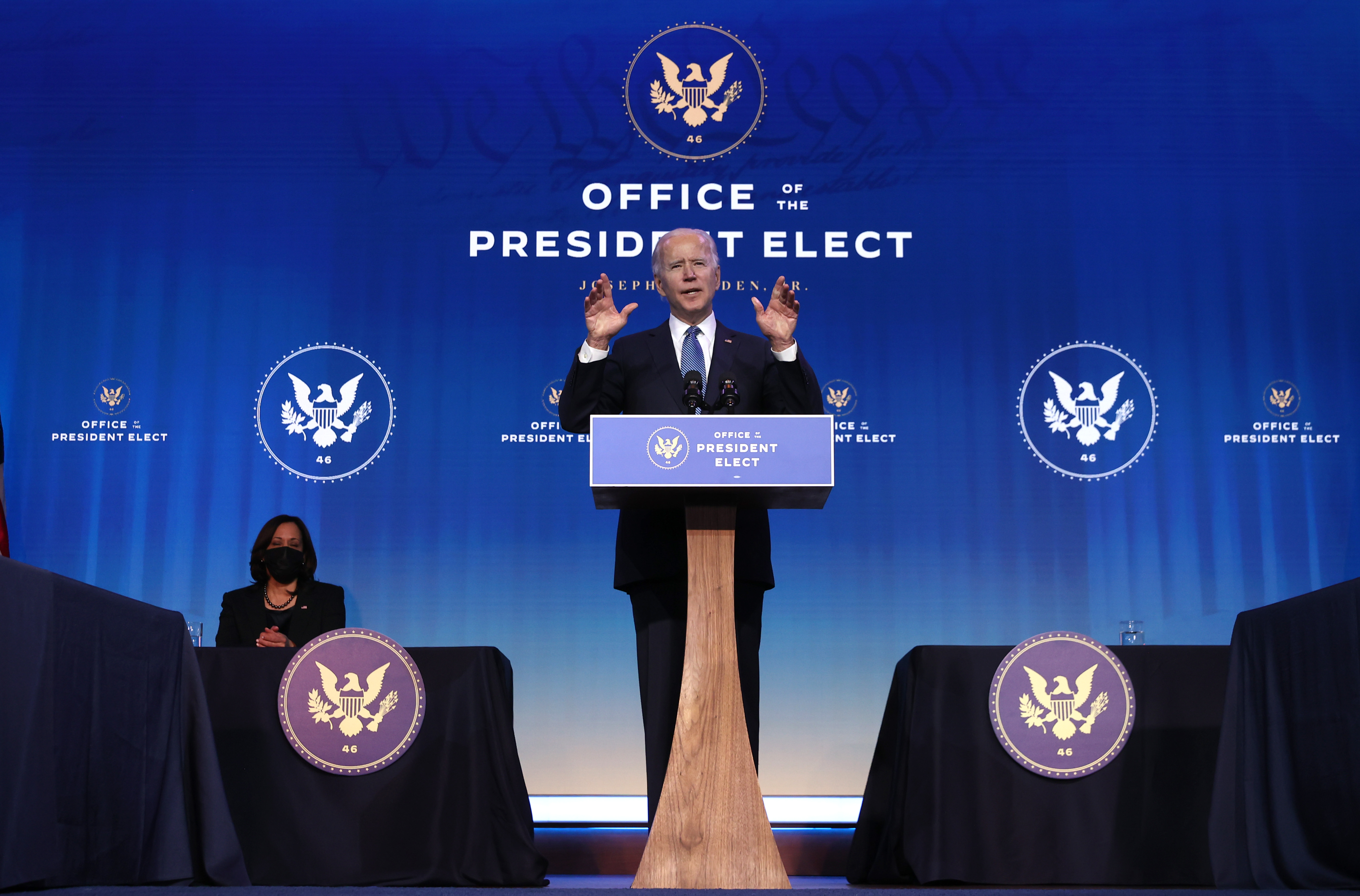Can Biden revive the economy?
Democrats look to robust spending

A free daily email with the biggest news stories of the day – and the best features from TheWeek.com
You are now subscribed
Your newsletter sign-up was successful
Democrats' unexpected gains in the Senate, thanks to two wins in Georgia, have "breathed new life into President-elect Joe Biden's economic agenda," said Anneken Tappe at CNN. The timing is critical. "America's economy needs more assistance beyond the stimulus bill President Trump signed into law" at the end of last year. That became clearer following the release of the December jobs report last week, which showed that the recovery has "ground to a halt." The economy shed 140,000 jobs last month, far more than economists had predicted, and the unemployment rate failed to improve for the first time in seven months as states are reimpose lockdown restrictions. The discouraging numbers are "a big call to action for the incoming Biden administration," and he'll now have a Democratic majority in the Senate to execute it.
An important lesson Biden should take from the Trump economy, said Neil Irwin at The New York Times, is that "the U.S. can surpass what technocrats once thought were its limits." Economists warned that Republicans' deficit-financed tax cuts would create a short-lived "sugar high," and low interest rates combined with near-full employment would whip up inflation. But "these warnings did not come true." The Federal Reserve put the brakes on the economy with a series of rate increases in 2015 out of "reliance on old economic models" and "inflation-fighting muscle memory." But inflation stayed stubbornly below its 2 percent target. That is crucial, said Conor Sen at Bloomberg, because what the economy needs right now is government spending to "kick-start a cycle of hiring, investment, and consumer spending." Investors expect Democratic control of Washington means more government spending, and that's exactly what they want. Wall Street now believes the Democrats "are the best party to get the economy out of its growth slump."
"Is economic policy really this easy?" asked Daniel Tenreiro at the National Review. Maybe we can just spend our way out of recessions, "but an underappreciated pillar of economic policy since Reagan is a strong dollar." That's what has created an "Imperial Circle," keeping capital from foreign investors flowing into the U.S. But the dollar has fallen roughly 8 percent since March. And wild spending could push it down further, "removing a key pillar of U.S. economic policy." Biden could also stifle the economy through reregulation, said Steven Malanga at City Journal. The Obama administration "issued some 22,700 rules in eight years," and by 2016, the bill for "administering all the federal government's red tape amounted to $70 billion a year." Biden will likely again "test the notion that government regulation is the enemy of growth."
The Week
Escape your echo chamber. Get the facts behind the news, plus analysis from multiple perspectives.

Sign up for The Week's Free Newsletters
From our morning news briefing to a weekly Good News Newsletter, get the best of The Week delivered directly to your inbox.
From our morning news briefing to a weekly Good News Newsletter, get the best of The Week delivered directly to your inbox.
Whether on spending or regulation, there are limits to what Biden can do, said Justin Lahart at The Wall Street Journal. With a very narrow Democratic majority in the House, "moderate Democratic representatives and senators will hold more sway, and they will balk if they believe the price tag has become too high." Raising taxes now amid the pandemic is also "a nonstarter," and "worries about voter backlash in 2022" could "limit how far they will go."
This article was first published in the latest issue of The Week magazine. If you want to read more like it, you can try six risk-free issues of the magazine here.
A free daily email with the biggest news stories of the day – and the best features from TheWeek.com